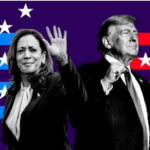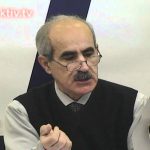The new WikiLeaks report sheds light on Azerbaijan’s position during the Russian invasion of Georgia. The diplomatic cable from the US Embassy in Baku to the US State Department dated August 22, 2008 shows that the government of Ilham Aliyev refrained from publicly supporting Georgia, but covertly supported that country to ensure its survival against the Russian attacks. The report quotes the president Aliyev telling the US diplomats that he had a series of tough negotiations with the Russian leadership in order to protect the BTC oil pipeline, and the areas of Marneuli region of Georgia which was home to significant number of ethnic Azeris. Below is the full text of the cable:
C O N F I D E N T I A L SECTION 01 OF 03 BAKU 000790
SIPDIS
E.O. 12958: DECL: 08/21/2009
TAGS: ENRG, ETRD, PREL, AJ, RU, TR
SUBJECT: AZERBAIJANI PRESIDENT: I DIDN’T STAND BEHIND SAAKASHVILI BECAUSE IT WOULD HAVE MADE NO DIFFERENCE
REF: ANKARA 1474
 Classified By: Charge Donald Lu, for reasons 1.4 (b,d).
Classified By: Charge Donald Lu, for reasons 1.4 (b,d).
1. (C) SUMMARY: On August 19, President Aliyev told visiting British Petroleum CEO Inglis that Azerbaijan is taking quiet steps to support Georgia, although Aliyev himself did not publicly support the Georgian President. For example, Azerbaijanis are repairing a critical rail bridge destroyed by the Russians. Aliyev reconfirmed his western orientation for oil and gas exports, although he acknowledged that he would sell some gas to Russia and oil to Iran. Aliyev stressed that gas sales to Russia would be limited, maybe 2 bcm, and that the purpose would be to pressure Turkey to conclude gas transit talks; oil sales to Iran are a result of current pipeline constraints. Aliyev said that during the crisis he phoned Moscow to warn them against attacking Azeri interests in Georgia, including pipelines, the ethnic Azeri community and the Azeri-owned oil terminal at Kulevi. END SUMMARY.
2. (C) On August 20, British Petroleum’s Chief Executive Officer for Exploration and Production Andrew Inglis briefed the Charge on his one-hour one-on-one meeting with President Ilham Aliyev on the evening of August 19. Inglis was to meet Aliyev on August 20, but the President asked to see Inglis early before the President’s meeting with visiting Turkish PM Erdogan. Inglis said that the President appeared “relaxed, convivial and warm.”
PRESIDENT’S REACTION TO GEORGIA CRISIS
3. (C) The President told Inglis, “I didn’t rush to stand behind Saakashvili because it would have made no difference.” The President quickly added that Azerbaijan is quietly finding ways to support Georgia. He claimed that Azerbaijan is providing more aid than anyone by using its people within the country (Comment: a possible reference to ethnic Azeri Georgians) to do “real things.” For example, he reported that Azerbaijanis are repairing the destroyed rail bridge link.
4. (C) Aliyev emphasized that the events of the past few days “reinforce the journey (towards a western orientation) and not the need for a U-turn.” He said that he is not in favor of changing his foreign policy in response to this conflict. His foreign policy has been to develop Azerbaijan’s independence from Russia using its oil and gas resources. This engagement continues.
5. (C) The President did probe Inglis about the timing of the Georgia invasion in relation to the PKK attack on the Baku-Tbilisi-Ceyhan (BTC) pipeline. He did not explicitly endorse the following conspiracy theory, but was interested in Inglis’ reaction. Aliyev linked the following events: — The PKK, formerly sponsored by the KGB, attacks the BTC. — Three days later Russia invades Georgia. — In a seemingly random act, the Russians blows up a key railway bridge halting rail export of oil. — A stray bomb falls 10 meters from the Baku-Supsa oil pipeline. — Transneft reports a technical fault along the Novorossiysk Line threatening one of the last remaining oil export route.
PRESIDENT ALIYEV PHONES MOSCOW
 6. (C) President Aliyev noted that when he learned that a stray Russian bomb struck near the Baku-Supsa line, he rang Moscow (he inferred that he called Putin but did not specify). He said that he wanted to make clear that it would be considered a “major act” if Russia took actions against Azerbaijan’s interests. He specifically complained about the bombing of a military airfield in the ethnic Azeri community of Marneuli, the stray bomb near the Baku-Supsa pipeline and reports of Russian troops entering the Azeri-owned oil terminal at Kulevi. Aliyev said that in response, the troops withdrew from Kulevi and there were no further bombings in these sensitive areas.
6. (C) President Aliyev noted that when he learned that a stray Russian bomb struck near the Baku-Supsa line, he rang Moscow (he inferred that he called Putin but did not specify). He said that he wanted to make clear that it would be considered a “major act” if Russia took actions against Azerbaijan’s interests. He specifically complained about the bombing of a military airfield in the ethnic Azeri community of Marneuli, the stray bomb near the Baku-Supsa pipeline and reports of Russian troops entering the Azeri-owned oil terminal at Kulevi. Aliyev said that in response, the troops withdrew from Kulevi and there were no further bombings in these sensitive areas.
GAS SALES TO RUSSIA A “SUBTERFUGE”
7. (C) Inglis explained that limited future gas sales to Russia are for the purposes of enhancing Azerbaijan’s position in the gas transit talks with Turkey. He emphasized that Aliyev told him that Azerbaijan still wants to sell Shah Deniz Phase Two gas west and not north. “It would be madness to do otherwise. The events have not changed the (political) rationale for exporting gas westward,” the President added.
8. (C) Inglis believes that Aliyev is in a much stronger position with Turkey than a month ago. Inglis added that Turkey must agree to transit rights and that Aliyev is not going to negotiate from a point of weakness. Aliyev said that he would be selling some gas to Russia and that “these sales to Russia must be credible.” Inglis noted that, for Russia, some is not enough. There is not enough gas to go around and Russia wants it all. There’s no compromise solution. The 2 bcm to Russia is not significant. It is “subterfuge” for the price negotiations, Inglis added.
9. (C) The President also told Inglis that as a result of the pipeline closures, Azerbaijan will be forced to sell crude to Iran.
ADDITIONAL DETAILS ABOUT THE PKK ATTACK ON BTC
10. (C) Inglis confirmed reftel report that BP has evidence showing that the fire at the block valve along BTC in Turkey was the result of sabotage. “We are absolutely confident it was terrorism,” he said. The evidence are photos showing a dent in the 8 inch bypass pressure line showing force from the outside as well as shrapnel holes. He passed copies of these photos to President Aliyev to show Turkish PM Erdogan in the event Erdogan denied that this was caused by terrorists.
11. (C) Inglis added that the block valves are the most vulnerable points, while the 42 inch main line is buried and was not damaged. To attack the main line would require a two meter trench, and something to penetrate its thick alloy. There are ten most vulnerable block valves in Turkey. BP has asked that the Turkish security forces “camp out” at these valve stations, in addition to requesting that the Turkish State Oil Company Botas eventually harden the facilities around the valves. BP has raised this with the Ministry of Energy in Turkey, but believes it needs to be raised with the Turkish Army as well.
12. (C) In Turkey, block valves are housed in “little green corrugated shacks,” whereas in Azerbaijan and Georgia the block valves and actuators are in concrete buildings with intrusion detectors. In Borjomi, Georgia, BP has installed carbon fiber matting to defend the main line against an RPG attack and fiber optic lines above the main line to detect digging.
AZERI CHARM OFFENSIVE WITH BP

13. (C) Last year, the Azerbaijani State Oil Company (SOCAR) was threatening to have BP Azerbaijan’s President arrested and tried for theft of state resources. In contrast, Inglis described the mood about BP in Azerbaijan as having come full circle. Aliyev made positive comments to the press about BP and SOCAR being friends in difficult times.
14. (C) The President told Inglis that Azerbaijan still needs BP. He asked rhetorically, “If SOCAR owned BTC would it still be there?” The President said he knows that he needs to keep BP motivated and interested in Azerbaijan. There was good discussion about a Production Sharing Agreement (PSA) extension and the extraction of Azeri-Chirag-Guneshli (ACG) deep gas. Inglis believed the details will still move at a certain pace, for tactical reasons, but that these issues are headed in the right direction.
15. (C) The President summoned the SOCAR President after the evening meeting with Inglis and made SOCAR available to Inglis the next day. “(SOCAR President) Rovnag (Abdullayev) was the nicest Rovnaq we’ve ever met.” Inglis said that he had “real conversation” with Abdullayev about the Shah Deniz Phase One gas price. Inglis advised SOCAR to settle on a price now and not wait for a conclusion of transit talks as the price of gas is rising every day.
COMMENT
16. (C) Inglis believes that Aliyev is looking for a statement from the West (and particularly the U.S.) that parallels Aliyev’s statement to Moscow: If you mess with the pipelines, you’re messing with us. He noted that Aliyev was dismissive of high-level people turning up in Baku for a photo-op with him and lacking a substantive message.
17. (C) On the sale of Azeri gas to Russia, Inglis clearly seemed to be spinning this to try to head off expected U.S. objection to such a sale. His analysis may yet be true about this sale being used to pressure Turkey over transit talks, but it is also doubtless motivated by BP’s commercial interest in developing a market and routes to justify Shah Deniz Phase Two and ACG deep gas production. Likewise, Azerbaijan oil sales to Iran could be problematic, if continued over the longer-term. LU
(Azerireport)


